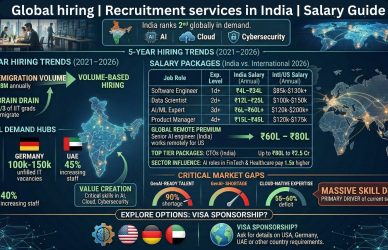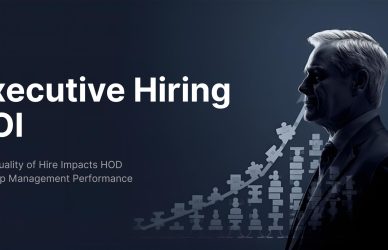Introduction: The Growing Need for Global EOR Services
Globalization is transforming the way companies approach international expansion, making agility and compliance crucial in competitive markets. Employer of Record (EOR) services have emerged as essential partners in facilitating seamless cross-border operations. This section delves into how EOR providers help businesses overcome regulatory complexities, ensure international payroll compliance, and accelerate global market entry.
1. Overcoming Regulatory Complexities
Expanding into global markets often presents a maze of regulatory challenges, from employment laws to tax regulations, which vary significantly across countries. Setting up a legal entity in each market can be costly and time-intensive. EOR solutions simplify this process by assuming employer responsibilities on behalf of the client, managing contracts, employee benefits, and tax filings.
By partnering with an EOR, companies can:
- Avoid the costs and complexities of establishing a local legal presence.
- Ensure compliance with evolving labor regulations and tax obligations.
- Mitigate the risk of non-compliance penalties in unfamiliar jurisdictions.
For instance, a U.S.-based technology firm entering the APAC region avoided delays and legal hurdles by using an EOR provider, allowing them to onboard talent quickly and focus on market growth.
2. Enabling Faster Market Entry
One of the most significant advantages of EOR services is the ability to drastically shorten market entry timelines. Traditional market entry processes, such as registering a business entity and securing operational permits, can take months or even years in some countries. EOR providers streamline this process by managing workforce-related logistics from day one.
Key benefits include:
- Reduced market entry timelines by up to 50%.
- The ability to hire international talent in weeks rather than months.
- Flexibility to pivot to new markets without long-term infrastructure commitments.
This fast-track approach was evident when a European e-commerce company expanded into Southeast Asia using an EOR, reducing their setup time from six months to just eight weeks.
3. Impact of Post-Pandemic Trends
The COVID-19 pandemic has reshaped global business operations, leading to a surge in remote work and distributed teams. This shift has amplified the demand for EOR services, as businesses seek compliant and efficient ways to manage remote international employees.
EOR providers play a pivotal role in enabling post-pandemic business resilience by:
- Managing remote onboarding, payroll, and compliance across multiple regions.
- Offering localized HR support to meet employee expectations in different countries.
- Ensuring seamless operations despite fluctuating global restrictions.
A recent case study highlighted a U.K.-based fintech firm’s rapid global expansion during the pandemic, using EOR services to build remote teams in five countries, enhancing their competitive edge and operational agility.
This overview underscores the growing reliance on EOR services in an increasingly globalized and interconnected business landscape, with data-driven insights and real-world examples showcasing their strategic value.

The Mechanics of EOR Services in Global Operations
To understand the global adoption of Employer of Record (EOR) services, it is crucial to explore their operational framework and how they add value to businesses navigating international expansion. EOR providers act as strategic partners, managing critical employment-related functions that enable companies to focus on core operations while ensuring global compliance.
1. Legal Employer Framework
An EOR provider assumes the role of the legal employer in the host country, managing employment obligations on behalf of the client company. This arrangement allows businesses to hire talent in new markets without establishing a local legal entity, significantly simplifying the expansion process.
Key responsibilities of the EOR include:
- Drafting and managing compliant employment contracts.
- Ensuring adherence to country-specific labor laws and tax regulations.
- Handling statutory benefits, severance pay, and dispute resolution.
By operating as the legal employer, the EOR mitigates the risk of non-compliance while providing businesses with the flexibility to scale operations globally. For example, a U.S.-based SaaS company used an EOR in Brazil to remain compliant with complex labor laws and avoid hefty penalties.
2. Payroll and Benefits Management
One of the core services provided by EORs is comprehensive payroll and benefits management. This includes salary disbursement, tax calculations, and contributions to social security or retirement funds, all in line with local regulations.
Key aspects of EOR payroll services:
- Ensuring timely and accurate salary payments in local currency.
- Handling deductions for taxes, health insurance, and social contributions.
- Providing customized employee benefits packages to meet market standards.
By centralizing payroll processes, EORs eliminate administrative burdens and minimize errors. A multinational company expanding into India, for instance, leveraged EOR services to manage complex payroll requirements and avoid delays during their talent acquisition process.
3. Onboarding and Offboarding Support
Efficient onboarding and offboarding processes are essential for maintaining workforce stability and employee satisfaction. EOR providers ensure that employees experience a smooth transition during their hiring or exit.
Key support areas include:
- Managing the documentation process for new hires and terminations.
- Offering localized support for orientation, training, and resource allocation.
- Ensuring compliance with mandatory notice periods and severance obligations.
A case in point is a European pharmaceutical company that expanded into Southeast Asia and relied on an EOR to provide culturally aligned onboarding experiences, helping new employees integrate smoothly while adhering to local regulatory requirements.
This section provides a detailed overview of the EOR operational framework, highlighting its pivotal role in simplifying global workforce management and ensuring compliance across international markets.

Global Drivers Behind the Rise of EOR Services
The rapid globalization of businesses has fueled the growing demand for Employer of Record (EOR) services. Several key factors are driving this trend, making EOR solutions indispensable for companies aiming to build a global workforce without the administrative complexities of establishing local entities. From remote work trends to cost efficiencies, this section explores the forces behind the rise of EOR services and their significance across industries.
1. The Rise of Global Talent Trends
The evolution of remote work has redefined traditional employment, creating a global talent pool where geographical boundaries are no longer barriers. Organizations now have the flexibility to hire top talent from anywhere in the world. However, this trend also presents challenges related to local labor laws, tax obligations, and benefits management.
EOR providers help businesses overcome these challenges by:
- Serving as the legal employer in multiple jurisdictions.
- Managing cross-border employment complexities, including taxes and benefits.
- Ensuring compliance with country-specific employment regulations.
For instance, a tech startup in the U.S. seeking specialized developers in Eastern Europe partnered with an EOR to onboard talent seamlessly, enabling them to build a global team without delays or legal issues.
2. Market Entry Efficiency
Expanding into new markets typically requires establishing a local legal entity, which can be a lengthy and resource-intensive process. EOR services eliminate this need, allowing companies to enter markets quickly and efficiently by handling employment logistics on their behalf.
Key benefits of EOR in market entry include:
- Rapid employee onboarding without waiting for legal entity approval.
- Access to local expertise for hiring and compliance management.
- Reduced market entry timelines, providing a competitive advantage.
By leveraging EOR services, businesses can focus on scaling their operations rather than navigating administrative roadblocks. A healthcare company expanding into the APAC region, for example, used an EOR to enter multiple countries simultaneously, reducing their market entry timeline by nearly 50%.
3. Compliance and Legal Security
Employment regulations vary widely from country to country, encompassing everything from working hours and paid leave policies to tax contributions and termination rules. Navigating this regulatory landscape without local expertise increases the risk of non-compliance, which can lead to penalties, lawsuits, and reputational damage.
EOR providers mitigate these risks by:
- Ensuring that employment contracts comply with local labor laws.
- Managing tax filings and social security contributions in each jurisdiction.
- Providing legal support to navigate complex regulatory environments.
For example, a European e-commerce company expanding to Latin America relied on an EOR to maintain legal compliance across different regions with varying employment laws, enabling them to avoid costly legal missteps.
4. Cost Savings
Setting up and maintaining a local subsidiary involves significant financial investments in legal fees, office infrastructure, and administrative staff. For many businesses, these expenses are prohibitive, especially for small and mid-sized enterprises (SMEs).
EOR services offer a cost-effective alternative by:
- Eliminating the need to establish and operate a local entity.
- Reducing overhead costs associated with payroll administration and legal consulting.
- Providing a scalable solution where costs align with workforce size.
A multinational technology company saved millions in operational costs by using an EOR to manage their international workforce instead of building regional offices in multiple countries. These savings allowed them to reallocate resources to innovation and market growth.
Adoption Across Key Industries
Industries such as technology, healthcare, and e-commerce have been among the fastest to adopt EOR services due to their need for global talent and rapid market expansion.
Technology: Software companies frequently hire remote developers and IT specialists across different time zones, making EOR services crucial for compliance and efficient onboarding.
Healthcare: Healthcare organizations expanding clinical research or medical services globally use EOR providers to ensure compliance with stringent labor regulations.
E-commerce: Online retail companies rely on EORs to manage customer support teams and logistics staff in different regions, allowing them to scale operations during peak demand periods without infrastructure investments.
These global drivers highlight why EOR services have become a strategic necessity for companies aiming to remain agile, competitive, and compliant in the evolving global business landscape.

Benefits of Leveraging EOR Services for Global Growth
Employer of Record (EOR) services have emerged as vital tools for companies seeking to expand globally. By outsourcing key employment functions to EOR providers, businesses can streamline their operations, reduce risks, and focus on strategic growth. This section outlines the primary benefits of EOR services and highlights case studies that demonstrate their impact on global growth initiatives.
1. Faster Global Expansion
One of the most significant advantages of EOR services is the ability to establish a presence in new markets quickly. Traditional market entry requires setting up legal entities, which can take months or even years, depending on the region. In contrast, EOR providers allow companies to hire employees and start operations in a fraction of the time.
Key benefits of faster expansion include:
- Rapid hiring and onboarding of local talent.
- Immediate access to international markets without legal entity setup delays.
- Increased agility in responding to global market opportunities.
For example, a U.S.-based software company expanded its operations in South America within weeks by partnering with an EOR provider, bypassing the lengthy legal processes required to set up subsidiaries in multiple countries.
2. Reduced Administrative Burden
Managing international HR functions, such as payroll, tax filings, and employee benefits, can be overwhelming for companies unfamiliar with local regulations. EOR providers assume these responsibilities, allowing businesses to offload administrative tasks and focus on their core operations.
Key ways EOR services reduce administrative burdens include:
- Handling employment contracts, payroll processing, and tax compliance.
- Managing social contributions and employee benefits aligned with local laws.
- Providing HR support for onboarding, offboarding, and performance management.
A European e-commerce brand entering the Asian market relied on an EOR to handle regional payroll and tax filings, freeing up their internal HR team to focus on talent acquisition and organizational growth.
3. Risk Mitigation
Global expansion comes with significant regulatory risks, as non-compliance with local employment laws can result in hefty fines, legal penalties, and reputational damage. EOR providers are well-versed in country-specific regulations and ensure that businesses remain compliant in every market they operate in.
Key risk mitigation benefits include:
- Ensuring compliant employment contracts and practices.
- Keeping up with changes in local labor laws and regulations.
- Reducing the likelihood of disputes related to benefits, termination, or taxation.
A multinational healthcare company used an EOR to expand into the Middle East, where labor laws vary significantly by region. The EOR ensured compliance with local regulations, preventing legal complications and operational disruptions.
4. Workforce Flexibility
EOR services offer businesses the flexibility to scale their workforce up or down based on market demand without the need for permanent infrastructure or long-term commitments. This flexibility is particularly valuable for project-based work, seasonal demand fluctuations, and rapid growth periods.
Key workforce flexibility advantages include:
- Hiring remote or contract-based employees without long-term obligations.
- Expanding into multiple regions simultaneously without infrastructure constraints.
- Quick adjustments to workforce size based on market conditions.
For example, an international logistics firm used an EOR to expand its operations across Southeast Asia during a peak holiday season. After the demand surge, they easily scaled down their workforce without the administrative challenges associated with permanent employment contracts.
5. Enhanced Employee Experience
A positive employee experience is crucial for retention and productivity. EOR providers offer comprehensive support to employees by ensuring they receive competitive benefits, accurate and timely payments, and smooth onboarding and offboarding processes.
Key elements of an enhanced employee experience include:
- Comprehensive benefits packages, including health insurance, paid leave, and retirement plans.
- Timely resolution of payroll and HR-related queries.
- Clear communication and localized support during onboarding and exit processes.
A fintech startup expanding across Europe used an EOR to provide region-specific benefits packages, improving employee satisfaction and retention rates. The streamlined onboarding process helped the company integrate new employees quickly and foster a sense of belonging across its distributed teams.
These benefits demonstrate how EOR services can support global growth by reducing operational complexities, enhancing compliance, and fostering a positive workforce environment. Real-world examples underscore their effectiveness in navigating the complexities of international HR management.

Challenges in the Global Expansion of EOR Services
While Employer of Record (EOR) services provide numerous advantages for businesses aiming to expand globally, they also present unique challenges. From navigating cultural differences to managing regulatory shifts and data privacy concerns, these hurdles can impact the seamless operation of EOR services. This section outlines the key challenges in the global expansion of EOR services and explores potential solutions to mitigate them.
1. Cultural and Communication Barriers
One of the primary challenges in managing a global workforce through EOR services is bridging cultural and communication gaps. Effective collaboration requires an understanding of local work customs, communication styles, and employee expectations. A lack of cultural awareness can lead to misunderstandings, reduced productivity, and employee dissatisfaction.
Key cultural and communication challenges:
- Differences in work etiquette, such as meeting protocols and feedback styles.
- Language barriers that may hinder clear communication.
- Varying expectations regarding work-life balance, benefits, and recognition.
Proposed solutions:
- Investing in local expertise to provide culturally appropriate onboarding and training.
- Offering cross-cultural communication training to management teams.
- Utilizing collaboration tools that support multilingual communication and time zone management.
For example, a global marketing firm partnered with an EOR to expand into Japan and overcame communication challenges by hiring a local HR consultant to support employee integration.
2. Navigating Regulatory Changes
Employment laws are constantly evolving, with new regulations introduced to address changes in economic conditions, labor rights, and tax policies. For EOR providers, staying up-to-date with these regulatory changes across multiple jurisdictions can be a significant challenge.
Key regulatory challenges:
- Frequent amendments to labor laws, such as updates to employee benefits and termination protocols.
- Differences in tax rates, social security contributions, and reporting requirements.
- Compliance risks when regulations change unexpectedly, impacting payroll or contracts.
Proposed solutions:
- Establishing a robust compliance monitoring system to track regulatory updates in real-time.
- Collaborating with local legal advisors to ensure accurate interpretation of regulatory changes.
- Implementing automated tools for compliance reporting and payroll adjustments.
For instance, a European IT company using an EOR in Brazil navigated regulatory updates by receiving regular compliance briefings from local legal experts, ensuring seamless payroll adjustments and tax filings.
3. Data Privacy and Security
Handling sensitive employee data, such as payroll information, tax details, and personal records, requires stringent data privacy and security measures. Cross-border data transfers can increase vulnerability to cyber threats, and non-compliance with data protection laws can lead to financial penalties and reputational damage.
Key data privacy and security challenges:
- Complying with country-specific data protection regulations, such as GDPR in Europe.
- Preventing unauthorized access to employee data across multiple regions.
- Managing secure data transfers and storage in cloud-based systems.
Proposed solutions:
- Implementing robust global cybersecurity protocols, including encryption and secure access controls.
- Partnering with EOR providers that adhere to international data protection standards.
- Conducting regular security audits and employee training on data privacy practices.
A financial services company expanding into Southeast Asia used an EOR that deployed end-to-end encryption and followed ISO-certified security standards to protect employee information, building trust with their global workforce.
4. Service Costs
While EOR services are more cost-effective than setting up local subsidiaries, the fees associated with EOR providers can add up, particularly for businesses with a large international workforce or operations in multiple regions. Costs can vary based on employee headcount, local regulations, and the complexity of payroll management.
Key cost-related challenges:
- Monthly service fees that increase with employee count.
- Additional charges for managing benefits, terminations, and compliance updates.
- Budget constraints for small and mid-sized enterprises (SMEs) expanding into multiple regions.
Proposed solutions:
- Negotiating customized service packages based on workforce size and regional needs.
- Comparing multiple EOR providers to find the most cost-efficient solution without compromising service quality.
- Evaluating the return on investment (ROI) by tracking cost savings compared to setting up local legal entities.
A mid-sized e-commerce company expanding to Latin America managed EOR service costs by opting for a phased expansion strategy, allowing them to gradually scale their workforce while staying within budget.
These challenges underscore the complexities of leveraging EOR services for global expansion. By adopting proactive measures such as investing in local expertise, staying informed about regulatory changes, and prioritizing data security, businesses can overcome these obstacles and maximize the benefits of EOR partnerships.

Top Global EOR Providers and Their Services
As businesses increasingly embrace global expansion, the Employer of Record (EOR) services market has witnessed significant growth, with several leading providers offering comprehensive solutions. These companies differentiate themselves by their geographic coverage, digital capabilities, and approach to compliance management. This section highlights some of the top global EOR providers, detailing their services, strengths, and unique features to help businesses make informed decisions.
1. MME
Overview:
MME is a market leader in EOR services, renowned for its vast international coverage and user-friendly digital platform. The company enables businesses to hire employees in over 180 countries, providing end-to-end employment solutions with a focus on speed and compliance.
Key Services:
- Global onboarding and payroll management.
- Comprehensive tax compliance and benefits administration.
- A fully integrated platform that allows businesses to manage international employees seamlessly.
Strengths:
- Exceptional global reach with coverage in almost every major market.
- Fast market entry, allowing businesses to onboard employees within days.
- 24/7 client support and localized expertise in each region.
MME is especially favored by large enterprises seeking scalability and streamlined processes for managing their global workforce.
2. Deel
Overview:
Deel has quickly emerged as a top EOR provider, especially for companies with distributed remote teams. Known for its automated payroll and compliance solutions, Deel leverages advanced technology to simplify cross-border hiring and employee management.
Key Services:
- Automated payroll processing in over 150 currencies.
- Employment contract generation tailored to local labor laws.
- Flexible payment options, including direct deposits, digital wallets, and cryptocurrency.
Strengths:
- Intuitive, automation-driven platform that minimizes manual intervention.
- Transparent pricing with no hidden fees.
- Robust compliance features that ensure businesses adhere to local regulations.
Deel’s platform is particularly popular with startups and mid-sized companies that prioritize efficiency and cost-effectiveness in managing remote teams.
3. Papaya Global
Overview:
Papaya Global stands out for its data-driven approach to global workforce management and advanced automation capabilities. The platform provides businesses with real-time insights into payroll expenses, helping them make informed decisions while ensuring compliance.
Key Services:
- Global payroll and EOR services across more than 160 countries.
- Integration with existing HR and financial systems for seamless operations.
- Comprehensive analytics dashboards for workforce cost tracking and compliance monitoring.
Strengths:
- Highly automated processes that reduce payroll errors and administrative workload.
- Detailed reporting and insights for strategic decision-making.
- Support for various workforce types, including full-time employees, freelancers, and contractors.
Papaya Global is an ideal choice for businesses that value transparency, data insights, and scalable automation in their global HR operations.
4. Velocity Global
Overview:
Velocity Global offers end-to-end workforce solutions with a focus on flexibility and compliance. The company supports businesses in over 185 countries, helping them expand rapidly by managing HR, legal, and payroll functions seamlessly.
Key Services:
- Global hiring and employee onboarding.
- Payroll, tax filings, and benefits management.
- Legal support for navigating local labor laws and mitigating compliance risks.
Strengths:
- Comprehensive service packages tailored to different industry needs.
- Strong focus on compliance, ensuring businesses remain legally secure.
- High-touch customer support with dedicated account managers.
Velocity Global is a preferred partner for companies that require customized solutions and hands-on support throughout their international expansion journey.
By comparing these providers based on services, coverage, and pricing transparency, businesses can identify the EOR partner that best aligns with their operational goals and budget. Each of these companies excels in different areas, making it crucial for organizations to assess their unique needs when selecting an EOR provider.

Future Trends Shaping the EOR Industry
The Employer of Record (EOR) industry is undergoing rapid transformation as technological advancements, employee expectations, and global market dynamics continue to evolve. These emerging trends are redefining how EOR providers operate and the value they deliver to businesses seeking international growth. This section explores key trends shaping the future of the EOR industry and their potential impact on global HR strategies.
1. Automation and AI Integration
Automation and artificial intelligence (AI) are playing a pivotal role in enhancing the efficiency and accuracy of EOR services. By leveraging innovative technologies, EOR providers are streamlining complex processes such as payroll management, compliance reporting, and employee onboarding.
Key advancements include:
- Automated payroll processing to minimize human errors and ensure timely payments.
- AI-driven compliance tools that monitor regulatory changes in real time and provide actionable insights.
- Intelligent chatbots and virtual assistants that offer 24/7 support for employee queries related to benefits and HR policies.
These technologies enable EOR providers to deliver faster, more reliable services while reducing administrative overhead for their clients. Companies that adopt automation-driven EOR services can focus more on strategic growth rather than operational tasks.
2. Focus on Employee Well-being
As the global workforce becomes more distributed, employee well-being has emerged as a critical priority for companies. EOR providers are differentiating themselves by offering comprehensive benefits packages and creating positive onboarding and employee engagement experiences.
Key trends in employee well-being initiatives include:
- Providing region-specific benefits, such as mental health support, wellness programs, and flexible work arrangements.
- Personalized onboarding experiences to ensure employees feel welcomed and connected, regardless of location.
- Regular feedback loops to address employee concerns and improve satisfaction.
For example, an EOR provider that offers localized health insurance and wellness perks can help companies enhance employee retention and productivity in competitive markets. Businesses that prioritize well-being are more likely to build resilient and motivated global teams.
3. Growth in Emerging Markets
Regions such as Southeast Asia, Africa, and Latin America are becoming hotspots for EOR services due to their growing talent pools, favorable economic conditions, and increasing demand for remote work solutions. As companies seek to capitalize on opportunities in these emerging markets, EOR providers are expanding their presence to offer localized expertise.
Key factors driving growth in emerging markets:
- Increased investment in digital infrastructure and connectivity.
- Government initiatives aimed at attracting foreign businesses and fostering employment.
- Rising demand for specialized talent in sectors such as technology, healthcare, and e-commerce.
EOR providers are playing a crucial role in facilitating market entry by helping businesses navigate complex labor laws and cultural nuances. Companies that target emerging markets can achieve a competitive advantage by leveraging EOR solutions to build local teams quickly and compliantly.
4. Hybrid EOR-PEO Models
To meet the diverse needs of businesses, some EOR providers are adopting hybrid models that combine elements of both EOR and Professional Employer Organization (PEO) services. These flexible solutions allow companies to choose the level of support they require, whether for global expansion or domestic HR management.
Key features of hybrid EOR-PEO models:
- EOR services for markets where companies do not have a legal entity, enabling quick international expansion.
- PEO services for regions where companies have a local entity but need outsourced HR functions such as payroll, benefits, and compliance.
- Integrated platforms that provide a unified view of global and domestic workforce management.
Hybrid models offer businesses the flexibility to scale operations without committing to a one-size-fits-all solution. This approach is particularly beneficial for companies undergoing rapid growth or restructuring their global HR strategies.
These trends highlight the evolving landscape of the EOR industry and underscore the need for businesses to stay informed and agile. As EOR providers continue to innovate, companies can expect more tailored solutions that enhance operational efficiency, improve employee experiences, and support global growth ambitions.

Conclusion: EOR Services as Catalysts for Global Success
The rise of Employer of Record (EOR) services marks a significant shift in how businesses approach international expansion. By managing complex tasks such as compliance, payroll, and HR operations, EOR providers enable companies to expand their global footprint without the administrative and legal burdens associated with setting up local entities. This strategic advantage allows businesses to focus on growth while ensuring seamless workforce management across borders
.
1. Selecting the Right EOR Partner
Choosing the right EOR partner is essential for successful global operations. With numerous providers in the market, businesses must carefully evaluate their options to ensure they align with their strategic goals and operational needs.
Key factors to consider when selecting an EOR provider:
Regional Expertise: An ideal EOR partner should have in-depth knowledge of local employment laws, tax regulations, and cultural norms in the regions where you plan to expand.
Technology and Integration: A robust digital platform that simplifies payroll processing, compliance monitoring, and employee management can significantly enhance operational efficiency.
Customer Support: Strong, responsive customer service and localized HR support ensure that employee queries and issues are resolved promptly, fostering trust and satisfaction among the global workforce.
For example, a company expanding into diverse markets like Southeast Asia and Europe may benefit from an EOR partner with a proven track record in handling multi-region compliance and onboarding processes efficiently.
2. The Future of Global Work
As businesses become more interconnected and the demand for remote work continues to grow, EOR services are set to play an increasingly central role in global workforce management. The flexibility to hire international talent without establishing a local legal presence enables companies to remain agile in a rapidly changing business environment.
Key future trends driving EOR adoption:
- Increased demand for distributed teams and remote work solutions.
- Continued regulatory changes that necessitate expert compliance management.
- Technological advancements, such as AI-driven HR tools, that further streamline global operations.
By embracing EOR partnerships, companies can unlock new growth opportunities, enhance operational agility, and build resilient, sustainable global operations. In an era of fierce competition and economic uncertainty, EOR services act as catalysts for long-term success in the global marketplace.




